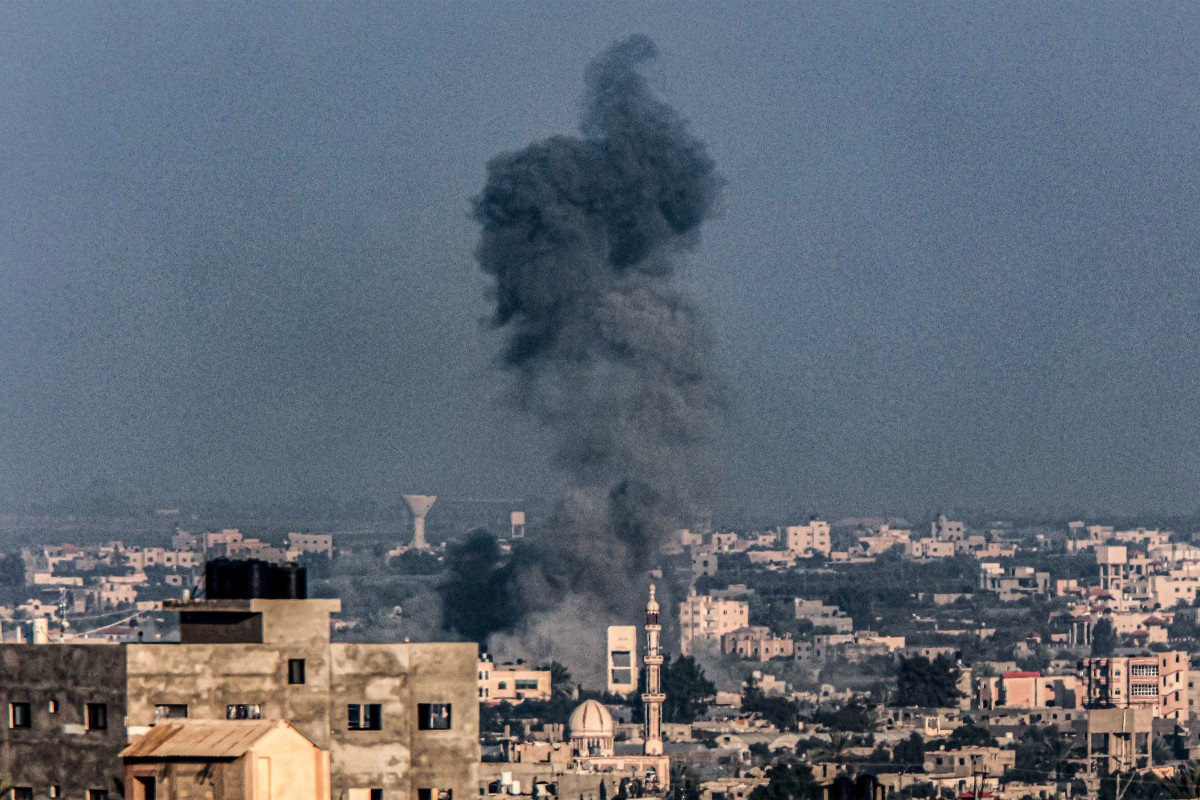



The Hamas and Palestinian Islamic Jihad terror groups have reportedly rejected an Egyptian proposal that would see Hamas give up control of the Strip in return for a permanent ceasefire.
According to two Egyptian sources cited by the Reuters news agency, the plan has been rejected by both terror groups that have been fighting Israel for close to three months.
Hamas and PIJ reportedly said they are unwilling to discuss any concessions to Israel beyond the release of the approximately 130 hostages still being held in Gaza.
“Hamas seeks to end the Israeli aggression against our people, the massacres and genocide, and we discussed with our Egyptian brothers the ways to do that,” a Hamas official who recently visited Cairo told Reuters on Monday.
“We also said that the aid for our people must keep going and must increase and it must reach all the population in the north and the south,” the official said. “After the aggression is stopped and the aid increased, we are ready to discuss prisoner swaps.”
The first stage of the Egyptian plan, which is backed by Qatar, would see a two-week halt to the fighting, extendable to three or four weeks, in exchange for the release of 40 hostages kidnapped from Israel. In return, Israel would release 120 Palestinian security prisoners who fit the same categories as the hostages released. During this time, fighting would stop and humanitarian aid would enter Gaza.
The second phase would see an Egypt-sponsored “Palestinian national talk” aimed at ending the division between Palestinian factions — mainly the Fatah party-dominated Palestinian Authority and Hamas — and leading to the formation of a technocratic government in the West Bank and Gaza that would oversee the reconstruction of the Strip and pave the way for Palestinian parliamentary and presidential elections.
The third stage would include a comprehensive ceasefire, the release of the remaining Israeli hostages, including soldiers, in return for a to-be-determined number of Palestinian security prisoners in Israeli jails affiliated with Hamas and Islamic Jihad. Israel would withdraw its forces from cities in the Gaza Strip and allow displaced Gazans from the enclave’s north to return to their homes.
Prime Minister Benjamin Netanyahu publicly reiterated on Monday the repeated Israeli assertion that the IDF will not halt fighting in the Strip until it has toppled Hamas.
“We are not stopping. Anyone who talks about stopping — no,” Netanyahu told IDF soldiers inside Gaza on Monday. “We’re not stopping. This war is going to go until the end. Until we finish them. No less than that.”
At the same time, Hebrew media outlets reported that Israel did not reject the proposal out of hand, with officials saying it could serve as a basis for negotiations.
Speaking at the Knesset, Netanyahu said Israel was making “every effort” to bring home the hostages being held by Hamas in the Strip, saying that doing so requires “military pressure” to succeed.
“We won’t stop fighting,” he said during a special parliamentary session, adding that “we need time,” while family members of hostages attending the session booed and shouted as he spoke.
“We aren’t stopping and we won’t stop until victory because we have no other land and no other path,” he said, to boos from the hostages’ families.
Finance Minister Bezalel Smotrich, meanwhile, emphatically rejected the reported Egyptian proposal on Monday.
The minister, who heads the far-right Religious Zionism party, declared that the war cabinet has “no mandate” to approve such a plan, and said his party would not be partners in a government that agrees to end the war or allows officials from the Palestinian Authority to be involved in governing Gaza.
“The war cabinet has no mandate to stop the war before all the war aims have been achieved,” said Smotrich. “After years in which Egypt allowed, by turning a blind eye, the crazy arming of Hamas… the only involvement it can have in Gaza is to allow Gazan residents to leave to [Egypt] on their way to other countries.”
“Neither Qatar nor Egypt will be involved in the future of what happens in the Strip. You don’t repeat mistakes,” Smotrich added. “Anyone who thinks that the State of Israel will agree to some plan of establishing a government of professionals in which Hamas and the Palestinian Authority are involved, under the guise of technocratic officials, is living in a fantasy.”
The war began with the deadly Hamas onslaught on October 7, when thousands of terrorists stormed into Israel, killing some 1,200 people and seizing around 240 hostages. In response, Israel launched an aerial campaign and subsequent ground operation, vowing to eliminate Hamas from the Gaza Strip and end its rule, while minimizing civilian casualties.
Hamas claims that more than 20,000 people in Gaza have been killed since the start of the war, a figure which does not differentiate between civilians and terror operatives and includes those killed in failed rocket launches. Israel has said it has killed more than 8,000 Hamas gunmen in the Strip.
It is believed that of the hostages abducted by Hamas on October 7, 129 remain in Gaza — not all of them alive — after 105 civilians were released from Hamas captivity during a weeklong truce in late November. Four hostages were released prior to that, and one was rescued by troops. The bodies of 11 hostages have also been recovered, including three hostages who were mistakenly killed by the military.
Gianluca Pacchiani contributed to this report.



